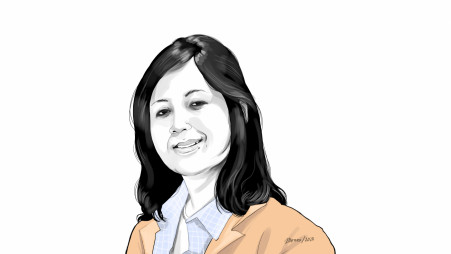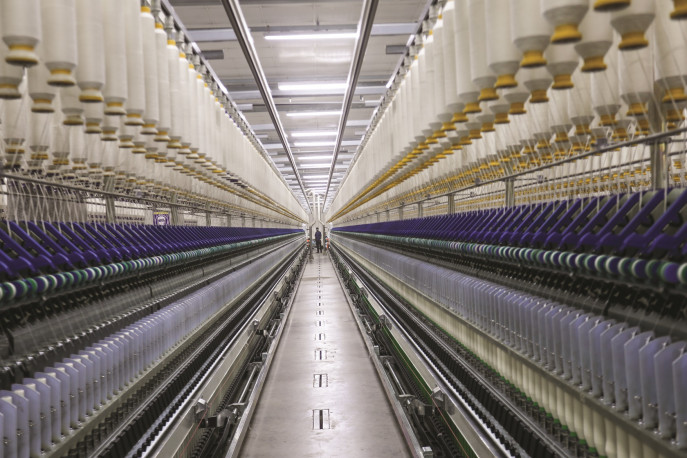The 4th industrial revolution and Bangladesh: The good, bad and ugly
Supplying techno-skills to the western market should not be Bangladesh’s core development target.

As a passionate reader of Economics I have always been keen on the long-existing interconnections between the economy, technology and employment. However, the groundbreaking technological and scientific innovations of recent decades have changed many old dynamics, and posed a serious challenge to the way we perceive and understand economic relations. We have been witnessing profound technological transformations and a frightening paradigm shift is underway. It is called the Fourth Industrial Revolution. So, how is it being dealt with locally?
Industrial revolutions have happened before. They have destroyed jobs in one sector, and created thousands in another. However, this time, emerging technologies are transforming the composition of the world's entire economy. Power has shifted from humans to algorithms. And the political agenda of job creation has been rapidly replaced by companies' revenue agendas.
Is "industry 4.0" unique? What kinds of jobs will it create? How many of them, and for whom? For whose interests? Nobody really knows what would happen with the mass introduction of robotics, computerisation, and artificial intelligence. A McKinsey report titled "Jobs Lost, Jobs Gained: Workforce Transitions in a Time of Automation" predicts that as many as 800 million workers could be displaced in 42 countries by 2030 – almost a third of the global workforce. Will the new tech jobs related to industrial IT, data analytics, and artificial intelligence offset the millions of lost jobs?
After all, robotics, blockchain, and 3D printing are disruptive technologies. They are perfectly capable of shaking social, economic and political orders and eliminating a range of existing jobs. Now the important questions are: Should we adapt? Should we play victim? Should we compel our legislators, regulators, and state agencies to adopt job-saving strategies?
Technologies are designed, funded, and marketed by big corporations. Major breakthrough technologies of the last four decades have been driven by a small club of rich individuals, and in most cases, the process of wealth accumulation is led by top-order innovations: smart phones, biometric sensors, GPS systems, high-speed wifi, or social media.
Who gets to control such breakthrough innovations? Who benefits? The West? The G7 countries? The industrial elites? Needless to say, it is the high tech companies who control, capture, and manipulate the dividends of industry 4.0. According to Prof. Tim Unwin, the United Nations Educational, Scientific and Cultural Organization's chair of Information and Communications Technologies for Development, "The interests of those shaping these technologies are not primarily in changing the society into a fairer and more equal one, but rather, they are competing to ensure their dominance and wealth as far as possible into the future."
It is widely argued that fourth industrial revolution is all about adapting – to fresh technologies, new gadgets, and job-killing software. However, the conviction that all must adapt is problematic. It sponsors the notorious notion of Social Darwinism, that only the "fit" will survive. The "unfit," the majority, do not matter. However, the revolution is not about the workers and the communities of the world. It is primarily about annual company turnovers and the high-tech innovators waiting to make their first millions.

The big question is, what should Bangladesh's position be in this enormous network of industry 4.0? What is our point of contribution in this complex value chain? How many local jobs can we actually create? Is this a sustainable cycle? Is this compatible with our skills, capabilities, and leverages? Are we ready?
It turns out that our government does not seem to care. Unemployment has risen out-of-control in the last decade. A decade of jobless growth has resulted in as many as 40 million unemployed people in Bangladesh. Mega projects, construction booms, and a number of mega power plants have not delivered the expected number of jobs. Due to the highly capital-intensive nature of the projects – whether the Dhaka Metro Rail, Padma Bridge, or Elevated Highways – national employment elasticity declined drastically. Due to growing mechanization in the agrarian sector, demand for farm labor also dropped. The heavy industries are becoming increasingly automated, while the RMG industry is moving towards massive layoffs. The McKinsey Report predicted that around 5.7 million unskilled workers from Bangladesh will be terminated in the coming decade. This is a frightening scenario.
What should be done, really, to prepare for the global hype? Join the rat race? Wait for the breadcrumbs to arrive? A warning: there is a rise of protectionist policies in the west. Big banks and retail houses are developing in-house-capabilities in data analytics. Automobile companies are automating repetitive jobs. Machine Learning tools are making entry-level IT jobs obsolete. Automated assembly lines are putting blue-collar factory workers out of jobs in China. The Indian IT sector is facing humongous lay-offs –resulting from emerging technologies related to artificial intelligence. Experts claim that the entire skill-set of the Indian nation has been developed to serve the US market alone, and that has delivered dangerous results. In this context, it is indeed risky business to entirely rely on the upcoming robotics revolution to create jobs at home.
In this rather sorry tale, it is important to remember that our policymakers, state agencies, and regulators are not mere victims of inevitable global hype. They are powerful, and they have roles to play, regulations to impose, and strategies to sort-out. An exclusive focus on foreign demand, foreign markets, and foreign revolutions does not deliver a sustainable economy. Merely supplying techno-skills to the western market could be a peripheral economic agenda, but should not be a core development target for Bangladesh.
A circular economy of 170 million people – with its own sustainable cycle of production, manufacturing, economic transactions, and natural resource management – should be the central focus of Bangladesh's development planning. Our: agriculture sector, manufacturing lines, small and medium enterprises, telecommunications, railway and transport, hospitals and diagnostic centers, plus universities and science labs – along with our power plants, power grids, and energy bases – require a degree of modernization, digitization, and upgrading. This would automatically create local opportunities for mass job creation. Relying on American robots is no answer to our national job crisis.
As Professor Unwin put it: "It is not the technologies that are changing the world, but rather the vision, ingenuity and rapaciousness of those who design, build and sell them. Humans still have choices. They can design technologies in the interests of the rich and powerful to make them yet richer and more powerful, or they can seek to craft technologies that empower and serve the interests of the marginalized." It is vital that we prioritise sustainable employment creation in the development agenda, rather than just project it as natural fallout of American tech revolutions.
[Maha Mirza is a researcher and activist.]


 Keep updated, follow The Business Standard's Google news channel
Keep updated, follow The Business Standard's Google news channel














